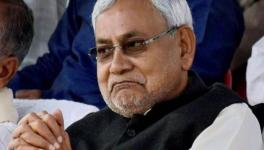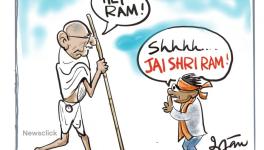George Orwell’s Birthplace in the ‘Land of Satyagraha’
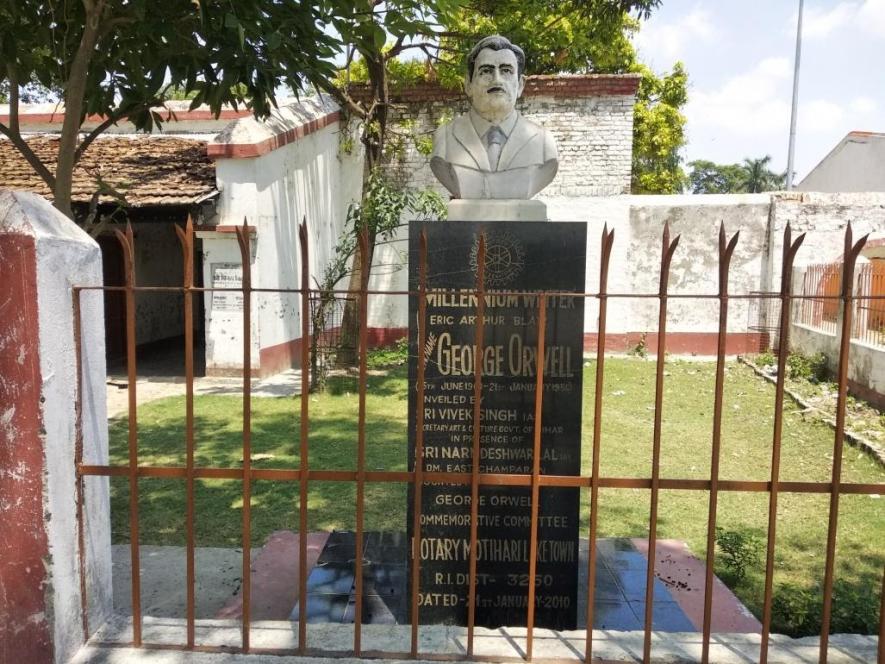
Statue of George Orwell, Motihari, Bihar
Bihar’s Culture Minister Pramod Kumar, along with a team of Bihar Art, Culture and Youth Department, visited Motihari town in East Champaran district a week ago and the purpose was to check the dilapidated condition of the house of renowned English novelist George Orwell.
The visit was aimed at preserving the house in which Orwell was born with the help of the Directorate of the State Archaeology. The Building Construction Department has been asked to prepare a conservation plan. An auditorium with an exhibition gallery is to be erected in the memory of the literary giant. This move by the state government comes in ahead of Orwell’s 117th birthday.
June 25 marks the birth anniversary of the celebrated English writer. Motihari city, East Champaran in Bihar, was home to English novelist, journalist and essayist Eric Arthur Blair alias George Orwell, remains a less known fact for people from the state and literary fraternity. For decades, the state government, local authorities, and people had left this landmark literally and figuratively in the dark. But since 2003, a handful of netizens of Motihari town have been trying to preserve the connection between Champaran and Orwell. For about a decade, an Orwell enthusiast, Debapriya Mukherjee, has been making efforts to restore and preserve the iconic writer’s birthplace. Members of the George Orwell Commemorative Committee and the Motihari Rotary Club have also been crucial in persuading the state government to declare the property a protected area.
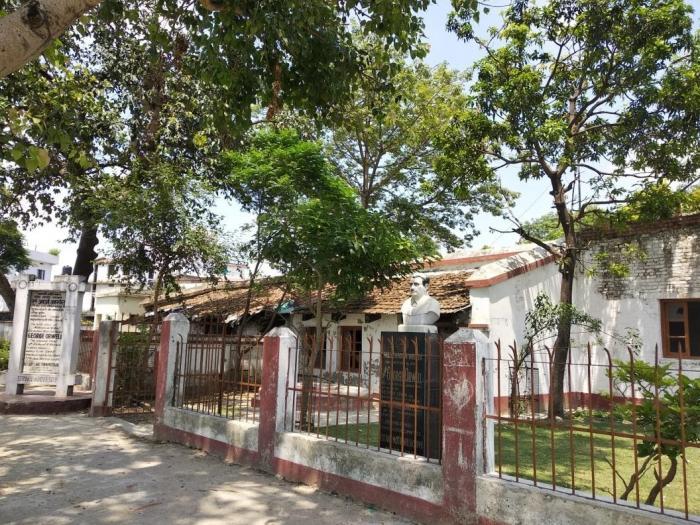
House of George Orwell
As a result, the state government declared the plot of 2.48 acres (George Orwell’s house with Opium Warehouse) a protected area under the Bihar Ancient Monuments (Protection) Act. It also earmarked a budget of Rs 59.50 lakh for its beautification in 2014 in order to attract tourists from around the world, especially from Britain. But now for a few years, the house has become a den for anti-social elements of the town, without electricity and security arrangements.
Bishwajeet Mukerjee, a Motihari-based documentary filmmaker and former journalist, had made a critically acclaimed documentary titled ‘George Orwell: In the land of Satyagraha’ and it was released in 2016. It focused on Orwell's birthplace in Motihari, and the close relationship the author had with Mahatma Gandhi and his first Satyagraha movement.
Back in 1983, a Scottish journalist, Ian Jack, had travelled to the town of Motihari and had gone through documents kept in archives at the Motihari collectorate. In a piece published in 1984 in theSunday Times, titled “In search of a Jaarj Arwil”, Jack recounted that locals were clueless about the fact that their town was the writer’s birthplace.
Orwell was born to Richard W Blair and Ida Blair in 1903. His father, an assistant sub-deputy agent in the Opium Department of the Indian Civil Service, used to supervise poppy farmers, collection of the produce, and processing of opium for export to China. After spending a year in the rural town of Motihari, Ida took Orwell to England wherein he completed his boarding school and further in 1922, graduated to join the Imperial Police in Burma. This was his first encounter with the imperial system which would make him understand the realities of an imperial, totalitarian, and colonial regime, which eventually led to his exit from the police force in 1928.
Post his Burma life, his disdain for the imperial regime became a central theme in his writings including Animal Farm and Nineteen Eighty-Four.
Orwell’s anti-imperialist sentiments witnessed a big leap when he joined the Indian section of the British Broadcasting Corporation (BBC). It was here that he got the opportunity to work with Balraj Sahni [who later became the iconic actor of Hindi cinema].
His association with the BBC lasted from August 1941 to November 1943. He wrote in his resignation letter: “I am tendering my resignation because for some time in the past I have been conscious that I was wasting my own time and the public money on doing work that produces no result. I believe that in the present political situation, the broadcasting of British propaganda to India is an almost hopeless task.”
Also read: The Case of Refugees in Greece
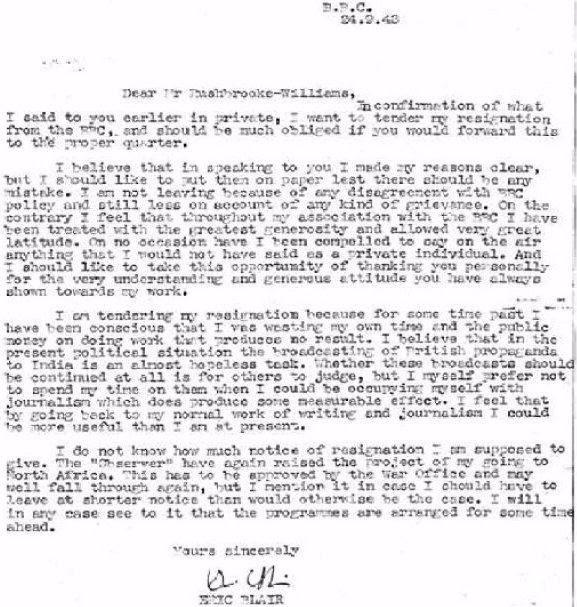
Picture Source: BBC Archives
In 1949, Orwell published ‘Reflections on Gandhi’ in whichhe offered a posthumous portrait of the leader of Indian independence. He wrote, “I have never been able to feel much liking for Gandhi, but I do not feel sure that as a political thinker he was wrong in the main, nor do I believe that his life was a failure. It is curious that when he was assassinated, many of his warmest admirers exclaimed sorrowfully that he had lived just long enough to see his life’s work in ruins, because India was engaged in a civil war which had always been foreseen as one of the byproducts of the transfer of power. But it was not in trying to smooth down Hindu-Moslem rivalry that Gandhi had spent his life. His main political objective, the peaceful ending of British rule, had after all been attained.”
Some of the most important works of Geroge Orwell include Notes on Nationalism, Politics and the English Language, Why I Write, The Prevention of Literature, and Thoughts on the Common Toad. Among his most famous works are Animal Farm and 1984.
Author is an independent journalist from Bihar.
Also read: Ten-Point Agenda for the Global South After COVID-19
Get the latest reports & analysis with people's perspective on Protests, movements & deep analytical videos, discussions of the current affairs in your Telegram app. Subscribe to NewsClick's Telegram channel & get Real-Time updates on stories, as they get published on our website.









